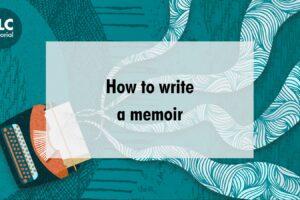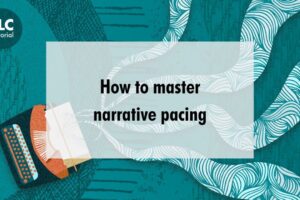The writer’s path, as we know all too well, can be a lonely one. On occasion, it must be admitted, it weighs you down. One afternoon a few weeks ago, I was wondering what kind of home my writing could possibly find in the current literary scene (not to call it “market”, which sounds crass, though that’s in all truth what it is), and suddenly, as I waited for a bus near Cheapside and looked at the people around me—people briskly walking past me, coming in and out of shops, riding on buses, absorbed in their gadgets—the awful thought hit me that none of those persons would probably feel any interest whatsoever in anything I write. “They”, I felt, were the market, and we belonged in different worlds, with little or nothing at all to tell each other. I felt, not for the first time, but clearly with more poignancy, an absolute alien in the 21st Century.

When my bus arrived, I was despondent. Yet a couple of hours later I was sitting in a café, writing, which has been one of my favourite activities for the past forty years, and I wasn’t an alien anymore. I was exactly in the world where I belonged, one where I felt fulfilled, and happy. I was working on my novel, which will be probably weird (as most of my books are), and which most certainly will never be a best-seller, when and if it finds a publisher. And none of that mattered at all.
Clearly despondency and a sense of fulfilment can be subjective states of mind. In a writer, they may mean the difference between thinking about our work and doing it. Curious about what my objective reality was, I started pondering on what being an ‘unfashionable’ writer means.
The conclusion was, to start with, that fashion is fickle. Fickleness is its very nature, whereas literature aims (at least that’s how I see it) at finding expression for enduring truths, the meaning of which, paradoxically, has never been and never will be exhausted—the truth of the human heart, for instance; the truth of reality and of consciousness; the truth of that extraordinary phenomenon which is language; the truth of beauty, and the unfathomable mystery that encompasses all the above. Literature aims at transcendence of some kind. Obviously, this doesn’t mean it has to be heavy, solemn or boring, but the quest for transcendence lies at its core. Therefore, fashion and literature are in essence incompatible. That is to say: there is no such thing as fashionable or unfashionable literature. There is something going on in the market, it keeps on changing according to its own highly arbitrary rules, and it is vociferous for sure, but it’s a mirage. Aren’t you relieved?
We can also put it this way: there is no literature without an inner world—the inner world of the author and that of the reader. Upon the act of reading, they merge in a most peculiar manner and engender an ineffable realm: a third inner world, shared, yet not equal, between individuals who may never even meet. We could argue, nevertheless, that in such an exchange lie the foundations of meaning. Shared inner worlds, unique perspectives, underpin the edifice of human communication, and therefore of culture. And culture, in this profound sense of human communion and continuity, isn’t a marketing phenomenon.
When I think of the authors whose work has most enriched and even sustained my life, those who have opened more doors, spurred the most important questions, nurtured my intellect and my imagination, shed light on my spirit, I acknowledge the marvel of having access to the unique inner worlds of strangers, and I can ascertain the craft with which those authors strove to shape that world and make it intelligible to some unknown reader out there, in the vaster world, at some unpredictable point in the future, and in unpredictable circumstances. That’s the magic of it. Some of my favourite authors were highly unfashionable in their own times, then came into fashion posthumously; others experienced public favour in exactly the opposite direction, and their fortune in this respect will keep on changing. It’s never set in stone. The fact that many suffered at the hands of the literary market, while others were fantastically successful, doesn’t add or take anything from their work. However, what all of them have in common is that they wrote in truthfulness from and about their own inner landscape and their unique perspective on what lay beyond, honouring the workings of their own imagination.
Surely bringing into existence a wholly new creation that can stand by itself in this manner is an indicator of living a meaningful life?

Never in the history of humankind have we been more exposed to distractions. For authors, the literary market and its spurious authority is one of them, not to talk about the pressure from all fronts to push ourselves forward, to join in the din of unbearable noise. This is not an environment conducive to literary creation. Good books grow in silence, of which we’re being relentlessly robbed. We must guard it.
That day writing at the café, giving continuity in that simple act to what has been my entire life as an author, aware of how my mood had changed from dejection to contentment, was a good reminder of why I do what I do, and of why my unique inner world is the only one I can ever shape and yield meaning from. There is in that endeavour a value per se, and it’s not negotiable. All great literary works confirm that. I’ve therefore vowed to myself not to allow fashion to distract, let alone stop me from my task, and if there is any valuable ‘tip’ I can share with other authors, I think this is it.










One Response
Thank you for writing this thoughtful piece Adriana Díaz Enciso , and thank you TLC for putting it on the blog. It is a beautiful tree of authenticity and authority standing majestically in the strange landscape that is contemporary publishing. It gives me hope, and I agree whole-heartedly with every word.